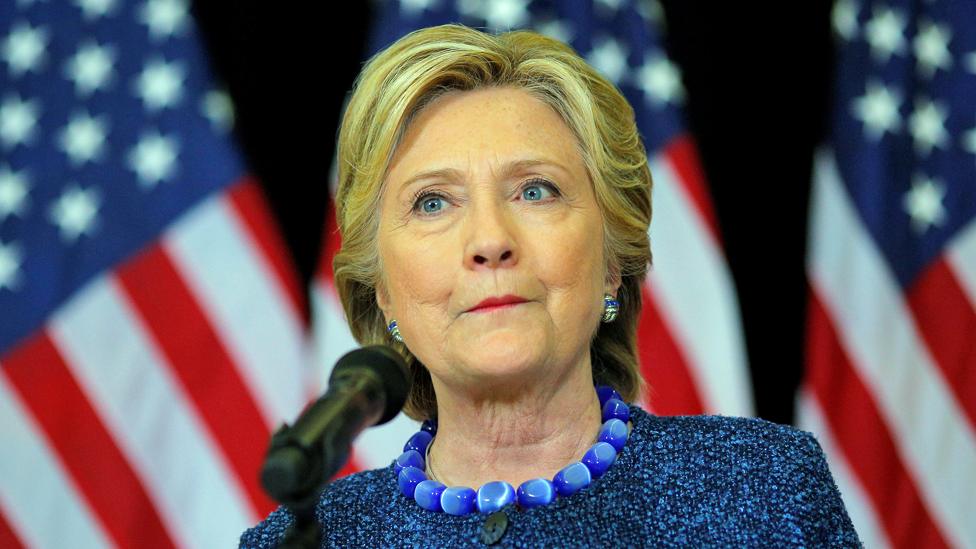Comey - both hero and villain (again)
- Published
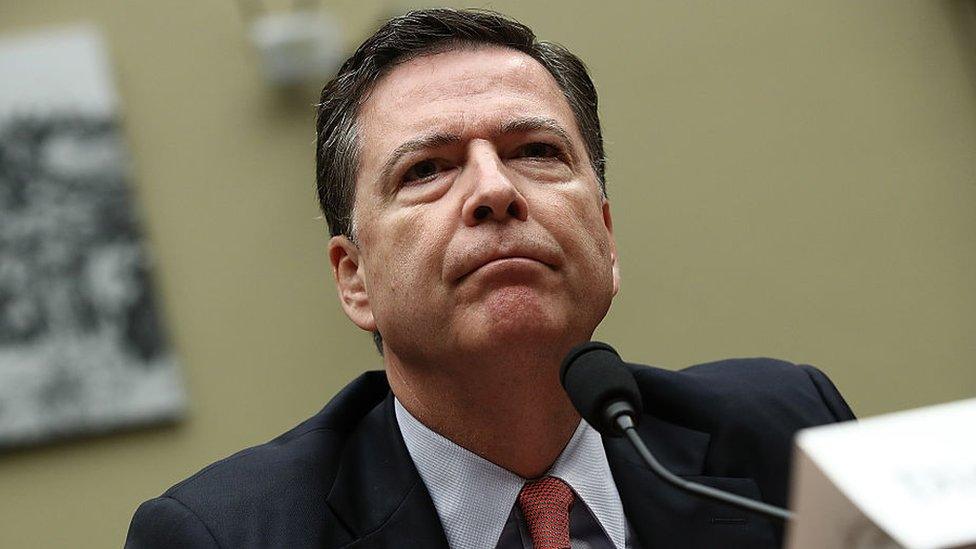
In politics, perceptions can change on a moment's notice. Heroes can fall and supposed villains can be redeemed.
Just ask Supreme Court Chief Justice John Roberts, who went from lion of the right to traitor when he wrote an opinion upholding the constitutionality of President Barack Obama's healthcare reform act four years ago. Or Texas Senator Ted Cruz, whose on-again, off-again, on-again bromance with Donald Trump has left his home-state support in tatters.
Now add Federal Bureau of Investigation head James Comey to that list. In July, after he announced he would not recommend criminal charges against Hillary Clinton following his agency's investigation into the handling of classified information on her private email server, he was roundly denounced by Mr Trump and Republicans in Congress.
The fix was in, they said. Mrs Clinton was being held to a lower legal standard than less prominent Americans, who would have been facing jail time.
"FBI director said Crooked Hillary compromised our national security," Mr Trump tweeted, external. "No charges. Wow! #RiggedSystem."
Meanwhile, Democrats were praising Mr Comey's probity and independence, given that the director once had served in President George W Bush's Justice Department. The investigation was closed, they asserted, and it was time to move on.
Then Friday happened. Republican Congressman Jason Chaffetz released Mr Comey's cryptic letter to Congress, prompting hours and then days of speculation and word-parsing fuelled by a seemingly unending series of leaks and revelations from FBI and justice department sources.
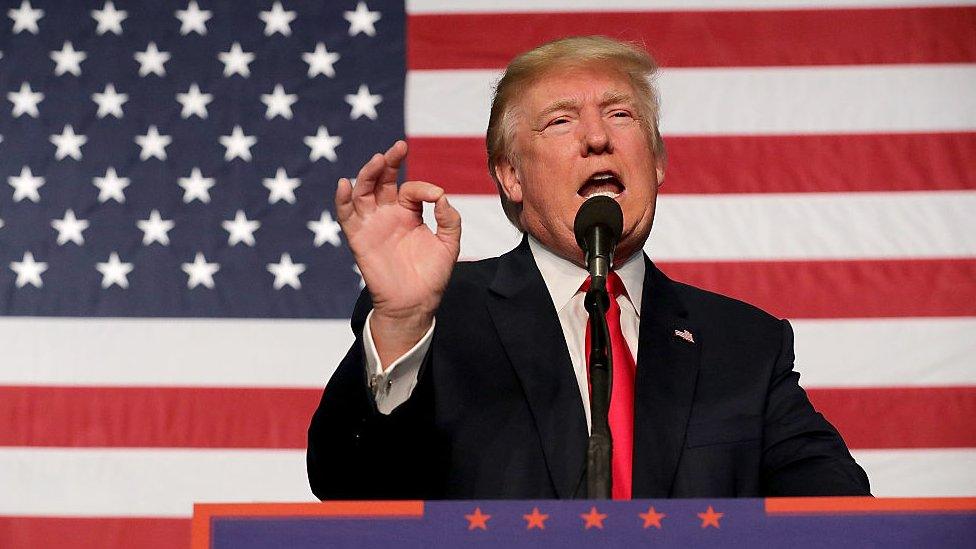
The Trump campaign sees the Clinton email investigation as a political lifeline
Now Mr Trump is singing Mr Comey's praises.
"I have to give the FBI credit," he said, "It took guts for Director Comey to make the move that he made in light of the kind of opposition he had where they're trying to protect her from criminal prosecution."
Democrats, on the other hand, are questioning Mr Comey's motives and calling for more details on what, if any, information they've gained from the emails in question. According to reports, the agency's investigators only recently acquired a search warrant to read them.
"No one can separate what is true from what is not because Comey has not been forthcoming with the facts," senior Clinton campaign advisor John Podesta said in a statement.
Mrs Clinton herself called Mr Comey's letter to Congress "unprecedented" and "deeply troubling".
That set up a particularly delicious irony when Mr Trump's campaign manager, Kellyanne Conway, went after Democrats for something her own candidate was doing regularly at campaign rallies right up until Friday's news broke.
"Astonished by the all-out assault on Comey by Team Clinton," she tweeted, external. "Suggesting he is a partisan interfering with the election is dangerous and unfair."
There is a bit of a twist in Mr Comey's image reversal, however - and it's that the chorus of praise from the right has been far from universal. While Mr Trump and his team welcomed the news on Friday as a much needed political lifeline, a bipartisan group of former Justice Department officials signed a letter, external - distributed by the Clinton campaign - saying Mr Comey made an "unprecedented decision" to inject his agency into the final days of a national election, which "leaves us both astonished and perplexed".
Some Republican officeholders are even joining the criticism. Congressman Jim Jordan, an ardent Clinton critic, said Mr Comey's revelation was "probably not the right thing to do". And former Congressman Joe Walsh, a conservative firebrand, tweeted, external that the move was "wrong and unfair to Hillary".
So far public opinion surveys have shown little evidence that the fallout from the Mr Comey's announcement has affected the race. Polls were tightening between the two candidates last week, and the few results that have come in since then show a public that is largely ambivalent, external to the latest news. An NBC survey, external in the field as the story broke had Mrs Clinton with a six-point lead before the news and a six-point lead after.
That's probably cold comfort to Mr Comey, who was in a difficult spot no matter how the nation's voters took the news. He's at the helm of an agency that is reportedly rife with internal dissent, external over how to handle Mrs Clinton's case, being pulled in multiple directions.
Given the preponderance of leaks coming out of the FBI over the past few days, there's little chance news of this new batch of emails would have remained secret for long once Mr Comey made his decision. The director may have been trying to do the best he could to get ahead of a story lest it spin out of his control.
So he acted - and then it spun out of his control anyway.
- Published30 October 2016
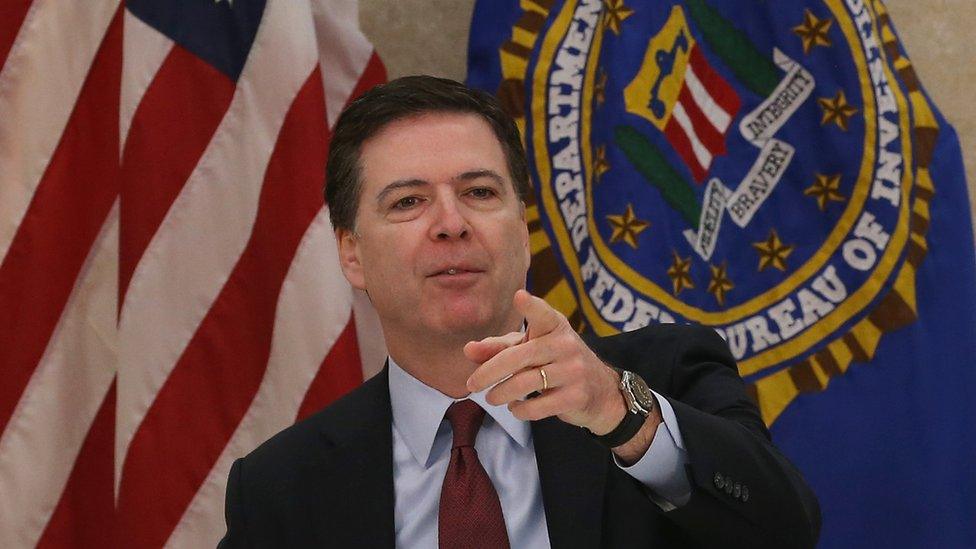
- Published30 October 2016
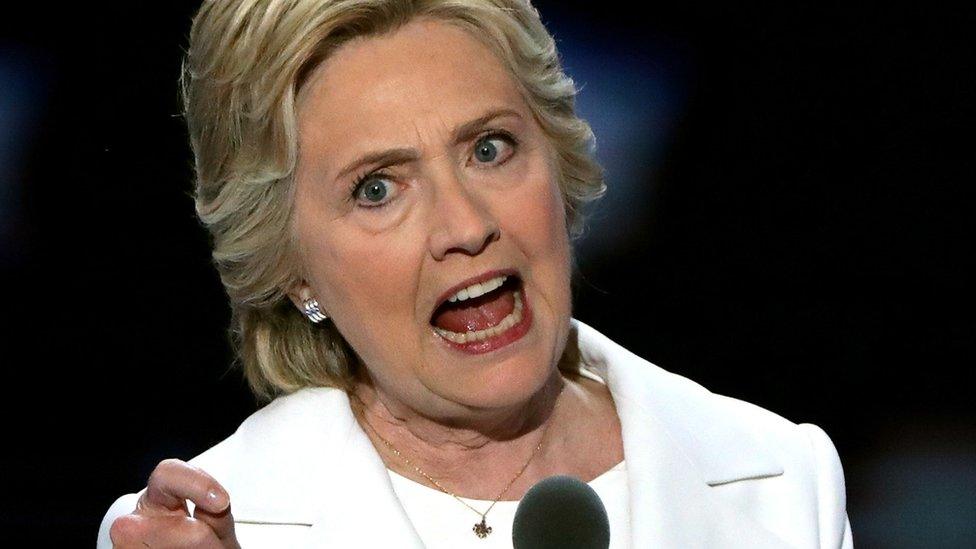
- Published10 May 2017
